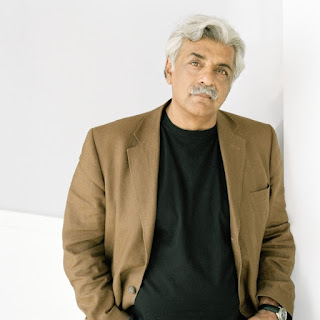Biography of Tariq Ali
Tariq Ali (born in 21 October 1943) is a British Pakistani author, columnist, antiquarian, movie producer, political dissident, and open scholarly. He is an individual from the publication council of the New Left Review and Sin Permiso, and adds to The Guardian, CounterPunch, and the London Review of Books. He read PPE at Exeter College, Oxford.
He is the writer of a few books, including Pakistan: Military Rule or People's Power (1970), Can Pakistan Survive? The Death of a State (1983), Clash of Fundamentalisms: Crusades, Jihads and Modernity (2002), Bush in Babylon (2003), Conversations with Edward Said (2005), Pirates Of The Caribbean: Axis Of Hope (2006), A Banker for All Seasons (2007), The Duel (2008), The Obama Syndrome (2010), and The Extreme Center: A Warning (2015)
Author, columnist and movie producer Tariq Ali was conceived in Lahore in 1943.
He was taught at Oxford University, where he wound up engaged with understudy legislative issues, specifically with the development against the war in Vietnam. On graduating he drove the Vietnam Solidarity Campaign. He claimed his very own autonomous TV creation organization, Bandung, which delivered programs for Channel 4 in the UK amid the 1980s. He is an ordinary supporter on BBC Radio and contributes articles and news-casting to magazines and papers including The Guardian and the London Review of Books. He is publication chief of London distributers Verso and is on the leading group of the New Left Review, for whom he is additionally an editorial manager. His fiction incorporates a progression of authentic books about Islam: Shadows of the Pomegranate Tree (1992), The Book of Saladin (1998), The Stone Woman (2000), A Sultan in Palermo (2005), and Night of the Golden Butterfly (2010). These five books are on the whole known as 'The Islam Quintet'
Pakistani-brought into the world British political lobbyist, author, communist pioneer, supervisor, hostile to war representative, showing pioneer, writer, student of history, author, TV maker, and producer. His distributions incorporate "The Coming British Revolution" (1972), "Would pakistan be able to Survive?" (1983), "The Nehrus and the Gandhis" (1985), "Road Fighting Years: An Autobiography of the Sixties" (1987), and "Revolting Rumors" (1998), a play parodying the Blair government. A companion of Bertrand Russell, whom he met while at school at Oxford.
Ali was naturally introduced to a patrician Pakistani family in Lahore. His dad was a Marxist, agnostic writer, while his maternal granddad was Sir Sikandar Hyat Khan, Prime Minister of the Punjab from 1937 to 1942 for the high society, common, genius landowners' Unionist PartyWikipedia's W.svg. Ali's folks defied their well off foundation by getting to be socialists and battled against military guideline in post-autonomy Pakistan, and Tariq emulated their example. A deep rooted agnostic and radical, at 6 years old he urged his family's workers to go on strike for more cash.
Ali was sent to the UK in the mid 1960s, matured 21 and as of now a political extremist, to keep away from the turmoil and suppression in Pakistan; he went to Exeter College, Oxford, whose other graduated class incorporate the main Earl of Shaftesbury, JRR Tolkien, Richard Burton, Alan Bennett, Martin Amis, and Pakistani establishing father and president Liaquat Ali Khan. He progressed toward becoming leader of the Oxford Union, where he composed discussions including one on the movement "This house would not battle for Queen and nation" which he asserts roused "a great deal of abhor mail ... from everywhere throughout the nation
Yet, in the event that Ali's books are implied as a remedial to the ever shorter memory range of the West, they are additionally implied as a test to the universal account of Islam itself, the kind of pruned history that schoolchildren in Cairo, Damascus, and Baghdad are still exposed to. In that somewhat internal looking form of occasions, the fundamental performance center of Muslim authentic experience is the alleged Arab heartland. Its significant dramatizations - the victories of the Prophet Mohammed and his quick successors, the Sunni-Shia break, the ascent and fall of traditions in Damascus and Baghdad - are played by commanders and caliphs, who are additionally the legends of the story. Ali's history happens, generally, in the wings of this theater. Be that as it may, in such evidently negligible settings as Palermo, Granada, or Lahore (which, in Ali's record, appears to be nearer to China than to Arabia), Islam is appeared to be in contact with the more extensive world. Its associations with western Christendom are a wellspring of scholarly innovativeness and in addition struggle. And keeping in mind that the facts confirm that Ali's picture of Saladin is a liberal one, the genuine saints of his books are the nonconformists.


0 Comments